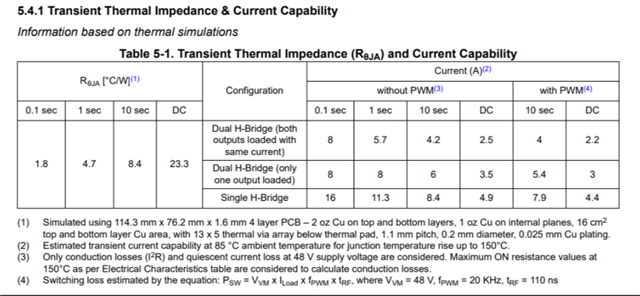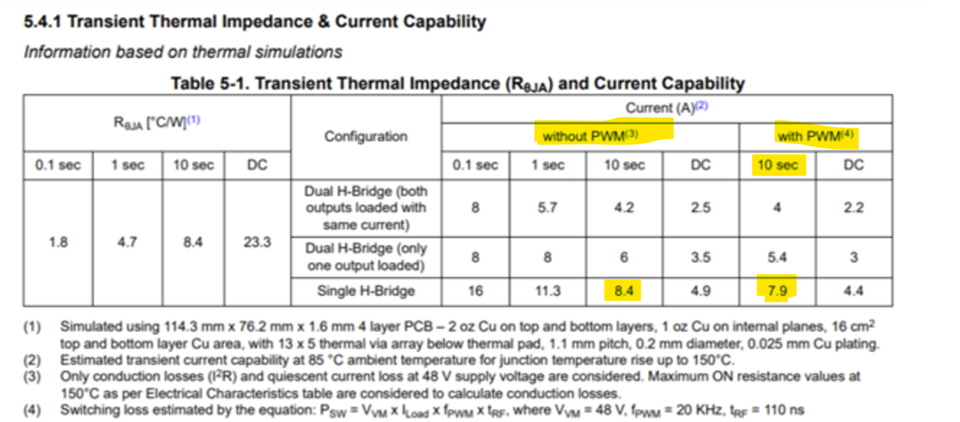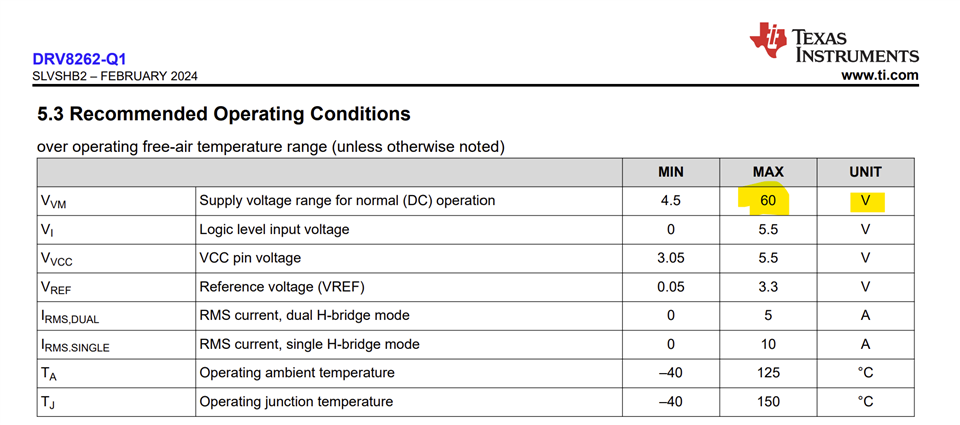Tool/software:
DRV8262-Q1 , Does this driver can handle 7.1A , in the 48V system for 1.5sec , if we connect motor in a single H -bridge

This thread has been locked.
If you have a related question, please click the "Ask a related question" button in the top right corner. The newly created question will be automatically linked to this question.
Tool/software:
DRV8262-Q1 , Does this driver can handle 7.1A , in the 48V system for 1.5sec , if we connect motor in a single H -bridge

Hi Ameena,
Thank you for your post.
As per the table you have see below highlighted values. It shows for with and without PWM drive and the given conditions of PCB, TA, etc as per the foot notes. The numbers highlighted are > 7.1 A for up to 10 s with single H-Bridge configuration.

Regards, Murugavel
Thanks Murugavel
What is the maximum input voltage the DRV8262-Q1 can endure, and for how long?
I am looking to use this part for 48V system and need to know the input transient voltage details
Hi Ameena,
What is the maximum input voltage the DRV8262-Q1 can endure, and for how long?
The recommended max. operating voltage VM for this device is 60 V. 60 V and below the device will endure over its life time. So transients up to 60 V in the 48 V system shouldn't be a problem for this device. However, a good 48 V system should not have 60 V transients. I have seen systems 48 V automotive that does not exceed 50 V, 55 V worst case well within the device's capabilities.
What is your end application, type of load and continuous load current and peak in-rush, stall etc load current. Would you use PWM switching? What frequency and duty cycle range? Often time improper sizing of the bulk capacitance on VM can cause voltage to go up momentarily due to inductive kick-back due to switching. See this application report, https://www.ti.com/lit/an/slvaft0/slvaft0.pdf. Thank you.

Regards, Murugavel